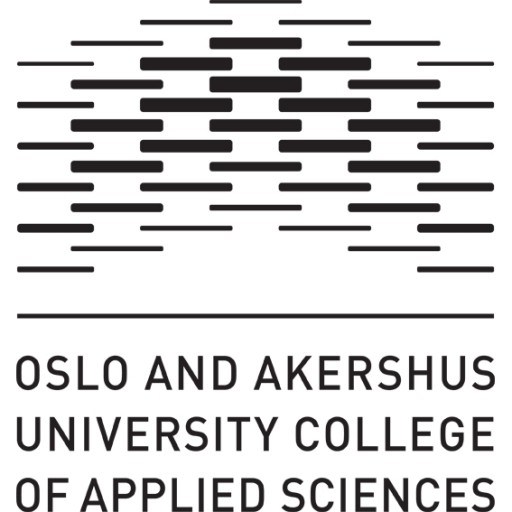Photos of university / #unioslo
The Master's Programme in Comparative and International Education at the University of Oslo offers a comprehensive and interdisciplinary approach to understanding education systems, policies, and practices across different cultural and national contexts. This program is designed for students who are interested in exploring the social, political, economic, and cultural factors that influence education worldwide, and who wish to develop the analytical skills necessary to address complex educational challenges in a globalized world. The curriculum provides a solid foundation in theories of education, development, and globalization, complemented by practical insights into educational policies, reform processes, and international cooperation. Students will engage with a diverse range of topics, including educational equity, human rights, multilingualism, refugee education, and the role of education in sustainable development. Through a combination of coursework, seminars, and a research project, participants will acquire the ability to critically assess educational systems and contribute to policy-making and research initiatives. The program emphasizes active learning and encourages students to participate in international exchanges, internships, and collaborative projects with institutions and organizations worldwide. Graduates of this program will be well-equipped to pursue careers in international organizations, NGOs, government agencies, research institutions, and academia, where they can influence educational policies and practices on a global scale. The University of Oslo’s reputable faculty members bring extensive expertise in comparative and international education, ensuring that students receive high-quality instruction grounded in the latest research. With a flexible structure that accommodates both full-time and part-time study options, the programme aims to prepare students for diverse professional roles in the field of education, fostering critical, reflective, and interculturally aware practitioners and researchers.
The Master's Programme in Comparative and International Education at the University of Oslo offers students a comprehensive understanding of education systems, policies, and practices across the globe. The program is designed to foster critical thinking and analytical skills, enabling students to examine the cultural, political, social, and economic factors that influence education worldwide. Throughout the programme, students explore diverse topics such as development and inequality in education, educational reform, global education policies, and the role of education in promoting social justice. The curriculum combines theoretical frameworks with empirical research, providing students with the tools necessary to conduct independent investigations into educational issues in different contexts.
Students have the opportunity to engage with a variety of teaching methods, including seminars, workshops, and research projects. The programme encourages active participation and dialogue among students from diverse backgrounds, enriching the learning experience with multiple perspectives. Fieldwork and case studies are integral parts of the coursework, allowing students to apply their knowledge to real-world situations. The programme also emphasizes the importance of ethical considerations and cultural sensitivity when studying and working within international education settings.
Graduates of this programme are equipped to pursue careers in policy analysis, research, international organizations, NGOs, and educational institutions. They acquire skills in critical analysis, qualitative and quantitative research methods, and effective communication, enabling them to contribute meaningfully to the development and reform of educational practices worldwide. The programme prepares students not only for academic careers but also for leadership roles in creating equitable and inclusive education systems across different countries and contexts. With a strong focus on comparative analysis and international perspectives, the Master's in Comparative and International Education at the University of Oslo offers a unique and valuable platform for those committed to advancing education for sustainable development and social justice.
Program requirements for the Master's in Comparative and International Education at the University of Oslo include a Bachelor’s degree or equivalent in education, social sciences, humanities, or related fields. Applicants must demonstrate proficiency in English, typically through tests such as IELTS or TOEFL, meeting specified minimum scores. Prior academic coursework should include qualitative and/or quantitative research methods, and experience or interest in international education issues is highly valued. The selection process emphasizes academic excellence, relevant experience, motivation, and potential for contribution to the field. Applicants are required to submit a completed application form, official transcripts, a CV, a statement of purpose outlining their academic and professional goals, and letters of recommendation from previous professors or professionals familiar with their work. The program also encourages applicants to provide a research proposal or statement of research interests, reflecting their focus area within comparative and international education. Admission decisions are made on a competitive basis, considering the candidate's overall profile. There are no specific pre-requisites beyond the general academic qualifications, but coursework in education, development studies, anthropology, sociology, or political science can strengthen an application. International applicants must ensure their qualifications meet the university’s equivalent standards and provide translations if necessary. The program promotes a multidisciplinary approach, so interdisciplinary backgrounds are welcomed. To successfully complete the program, students are required to undertake coursework, participate actively in seminars and discussions, and complete a master's thesis demonstrating research competence in comparative and international education themes. The thesis must conform to university guidelines and is supervised by faculty members specializing in the field. The program's duration is typically two years, and students are encouraged to engage with international research networks and participate in relevant seminars and conferences. Multilingual proficiency beyond English may be beneficial but is not mandatory. The university offers guidance and support for international students throughout the application process and during their studies to ensure they meet all academic and administrative requirements.
The financing of the Master's programme in Comparative and International Education at the University of Oslo is primarily based on a combination of government funding, student contributions, and potential scholarships for international students. As a Norwegian and EU/EEA citizen, students are typically eligible to pay only the standard tuition fees set by the Norwegian government, which are relatively low compared to international standards, making higher education accessible to a wide range of students. For non-EU/EEA students, tuition fees apply, and the university offers various scholarship opportunities to support international applicants. These scholarships are usually competitive and may cover partial or full tuition fees, as well as living expenses, depending on the specific award.
Norwegian students and students from EEA/Swiss countries benefit from state funding and have access to student loans and grants provided by the Norwegian State Educational Loan Fund (Lånekassen). These financial aid options are designed to cover both living costs and study-related expenses, enabling students to pursue their degrees without undue financial hardship. Additionally, students may seek external funding sources such as governmental scholarship programs from their home countries, international organizations, or private foundations that support education in the field of comparative and international education.
The university itself allocates funding for its programmes through national grants and research funding bodies such as the Research Council of Norway, which may also support research-related components of the programme. Students often have the opportunity to participate in research projects funded by these agencies, which can provide additional financial support and valuable professional experience.
Students are encouraged to explore and apply for various scholarship opportunities early in their application process. The university’s website provides detailed information on available scholarships, eligibility criteria, and application procedures. It is also recommended that students consider part-time work options available in Oslo, which has a vibrant student job market, to supplement their income during their studies. Overall, the financing options for this programme are designed to promote accessibility and reduce financial barriers, thereby enabling diverse student participation and fostering a vibrant academic community.
The Master’s programme in Comparative and International Education at the University of Oslo offers students the opportunity to explore the diverse educational systems and practices across different countries and cultures. The programme is designed to provide an in-depth understanding of the development, implementation, and impact of education policies and practices in a global context. It combines theoretical approaches with empirical research methods, enabling students to analyze complex educational issues from multiple perspectives.
Students will study topics such as educational development, social justice, equity in education, globalization's influence on education, and the politics of education policy-making. The programme curriculum includes courses on educational theory, qualitative and quantitative research methods, policy analysis, and case studies from various regions of the world. The programme emphasizes critical thinking and encourages students to develop their analytical skills, which are essential for careers in international organizations, NGOs, government agencies, and research institutions.
The programme also offers opportunities for practical experience through internships and research projects, often in collaboration with international organizations or local educational institutions. This exposure helps students to understand real-world challenges and develop skills to address inequality and promote inclusive education. Graduates of the programme are equipped to work in diverse settings, contributing to policy-making, research, and specialized consultancy on educational issues at both national and international levels.
Students in the programme benefit from the university’s strong academic community and international network. The Department of Education at the University of Oslo is known for its research excellence and its commitment to fostering an inclusive, collaborative learning environment. The programme typically requires a bachelor's degree in education, social sciences, or related disciplines, and proficiency in English.
Overall, the Master’s in Comparative and International Education prepares students to analyze and influence educational systems worldwide, fostering a deeper understanding of the challenges and opportunities within global education. The programme aims to develop reflective practitioners and future leaders capable of making meaningful contributions to the advancement of education for social change.






